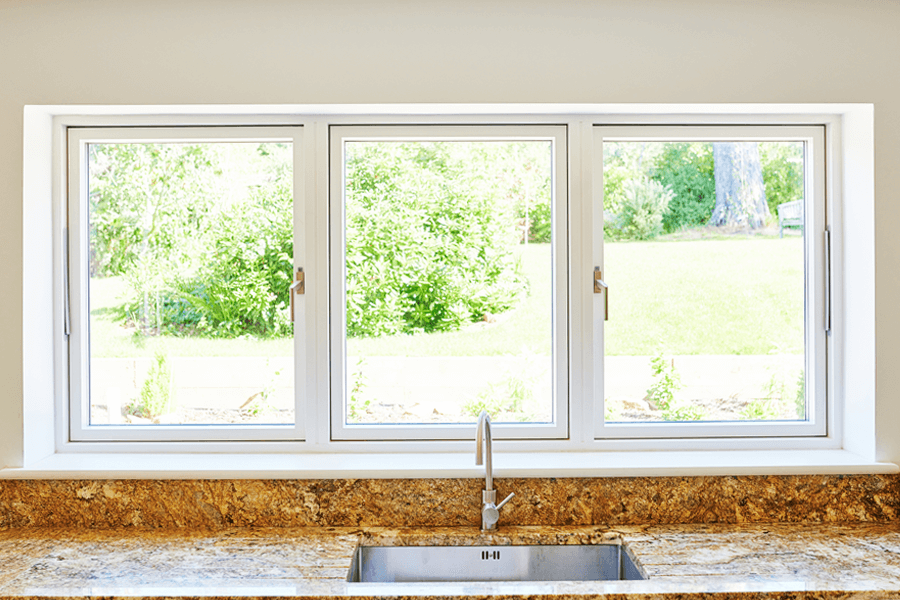As homeowners, we’re always looking for ways to improve our living spaces, increase energy efficiency, and potentially boost our property’s value. One question that often arises in this pursuit is whether it’s worth replacing old double glazed windows.
This decision can have significant implications for your home’s comfort, appearance, and energy consumption, as double glazed windows offer superior quality, stylish designs, and market-leading multi-chambered profiles that ensure outstanding thermal efficiency and durability.
In this comprehensive guide, we’ll explore the various factors to consider when deciding whether to upgrade your double glazed windows.
Before diving into the replacement discussion, let’s briefly review what double glazed windows are and how they work.
What are double glazed windows?
Double glazed windows, also known as insulated glazing units, are a type of window that consists of two panes of glass separated by a gap. This gap is typically filled with air or an insulating gas like inert gas. The design of double glazed windows creates an insulating barrier that reduces heat transfer between the inside and outside of your home, making them a popular choice for improving energy efficiency and preventing heat loss.
There is a wide range of double glazing options available, including different materials, colours, sizes, and opening combinations, making them not only functional but also decorative additions to your home.
The evolution of double glazing
Double glazing technology has come a long way since its introduction. Modern double glazed windows often incorporate advanced features such as:
- Low-emissivity (Low-E) coatings
- Warm edge spacer bars
- Argon or krypton gas fills
- Multi-chambered frames
- Enhanced security features
These improvements have significantly boosted the performance of double glazed windows in terms of thermal insulation, energy efficiency, and overall functionality.
Signs your double glazed windows may need replacement
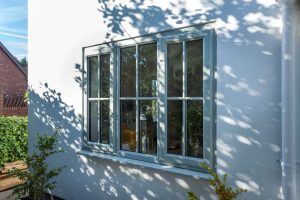
Age of the windows
If your double glazed windows are over 15-20 years old, they may not be performing as efficiently as modern alternatives. Older windows often lack the advanced features and materials used in contemporary double glazing.
Visible damage or wear
Look for signs such as:
- Cracks or chips in the glass
- Warped or rotted frames (especially in wooden windows)
- Loose or damaged seals
- Condensation between the panes
Poor thermal performance
If you notice cold spots near your windows or a significant increase in your energy bills, your current windows may be losing their insulating properties.
Noise penetration
Increased external noise could indicate that your windows’ sound insulation is deteriorating.
Difficulty in operation
Windows that are hard to open, close, or lock may be reaching the end of their functional life.
Benefits of replacing old double glazed windows
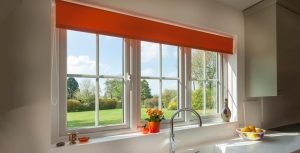
Improved energy efficiency
Modern double glazed windows offer superior thermal insulation compared to older models. This improvement can lead to significant energy savings, potentially reducing your heating and cooling costs.
Enhanced comfort
New windows can help maintain a more consistent indoor temperature, eliminating cold spots and drafts near windows.
Noise reduction
Advanced double glazing technology provides better sound insulation, creating a quieter indoor environment.
Reduced condensation
Newer windows are less prone to condensation, which can help prevent mould growth and related health issues.
Increased property value
Upgrading to new, high-quality windows can boost your home’s kerb appeal and market value.
Improved security
Modern double glazed windows often come with enhanced security features, such as multi-point locking systems and toughened glass.
Low maintenance
Many contemporary window materials, such as uPVC, require minimal maintenance compared to older wooden frames.
Factors to consider before replacing
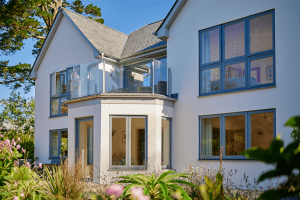
Cost vs. benefits
The initial investment in new windows can be substantial. Consider the potential energy savings and increased property value against the upfront costs.
Current window condition
If your existing windows are in good condition and performing adequately, replacement might not be immediately necessary.
Home’s age and style
For period properties, maintaining the original aesthetic might be a priority. Modern windows are available in various styles to complement traditional architecture.
Local climate
In regions with extreme weather conditions, the benefits of upgrading to high-performance windows may be more pronounced.
Building regulations
Ensure that any replacement windows comply with current UK building regulations, including those related to thermal performance and safety.
Types of replacement windows to consider
| uPVC windows | |
| Pros | Cons |
| Excellent thermal insulation
Low maintenance Cost-effective Available in various colours, including popular options like Anthracite grey and Chartwell green |
May not suit all architectural styles |
| Aluminium windows | |
| Pros | Cons |
| Sleek, modern appearance
Strong and durable Suitable for large glazed areas |
Generally more expensive than uPVC
Can be less thermally efficient unless using thermal break technology |
| Timber windows | |
| Pros | Cons |
| Ideal for period properties
Excellent insulation properties Environmentally friendly |
Require more maintenance
Can be more expensive
|
Energy ratings and certifications
Look for windows with high energy ratings from recognised bodies like the British Fenestration Rating Council (BFRC). Also, check for certifications from organisations such as the British Board of Agrément (BBA) and the Glass and Glazing Federation (GGF) to ensure quality and performance.
Installation considerations
Professional installation is crucial for optimal performance. Poor installation can negate the benefits of even the highest quality windows. Ensure your chosen window supplier offers expert installation services and provides a comprehensive guarantee.
Are double glazed windows worth it?
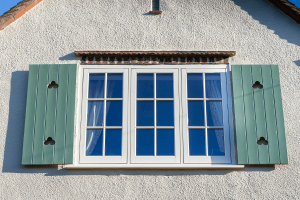
Replacing old double glazed windows can indeed be worth the investment, particularly if your current windows are underperforming, damaged, or significantly outdated. The benefits of improved energy efficiency, enhanced comfort, noise reduction, and increased property value often outweigh the initial costs.
However, the decision should be based on a careful assessment of your specific circumstances, including the condition of your current windows, your budget, and your long-term plans for the property.
If you’re unsure, it’s advisable to consult with a reputable window specialist who can assess your current windows and provide tailored recommendations.
How can DNA Window Solutions help you?
At DNA Window Solutions, we understand that choosing to replace your windows is a significant decision. Our team of experts is here to help you make an informed choice that best suits your needs and budget. With our 25 years of experience and comprehensive range of high-quality home improvement products, including uPVC and Aluminium windows in various window colours, composite doors, and conservatories, we can provide the perfect solution for your home.
Our double glazed units are crafted from top British profiles and carry prestigious accreditations such as the British Standard Kite-mark and British Board of Agrement certificates, ensuring quality and customer satisfaction.
Contact us today for a free, no-obligation consultation and quote. Let us help you transform your home with energy-efficient, stylish, and secure windows that will stand the test of time.
Discover more with DNA Windows
The Best uPVC Door Options for an Affordable Home Upgrade
Why Casement uPVC Windows are a Popular Choice for Devon and Cornwall Homes
What Advantages Do Composite Doors Offer for Your Devon and Cornwall Home?


